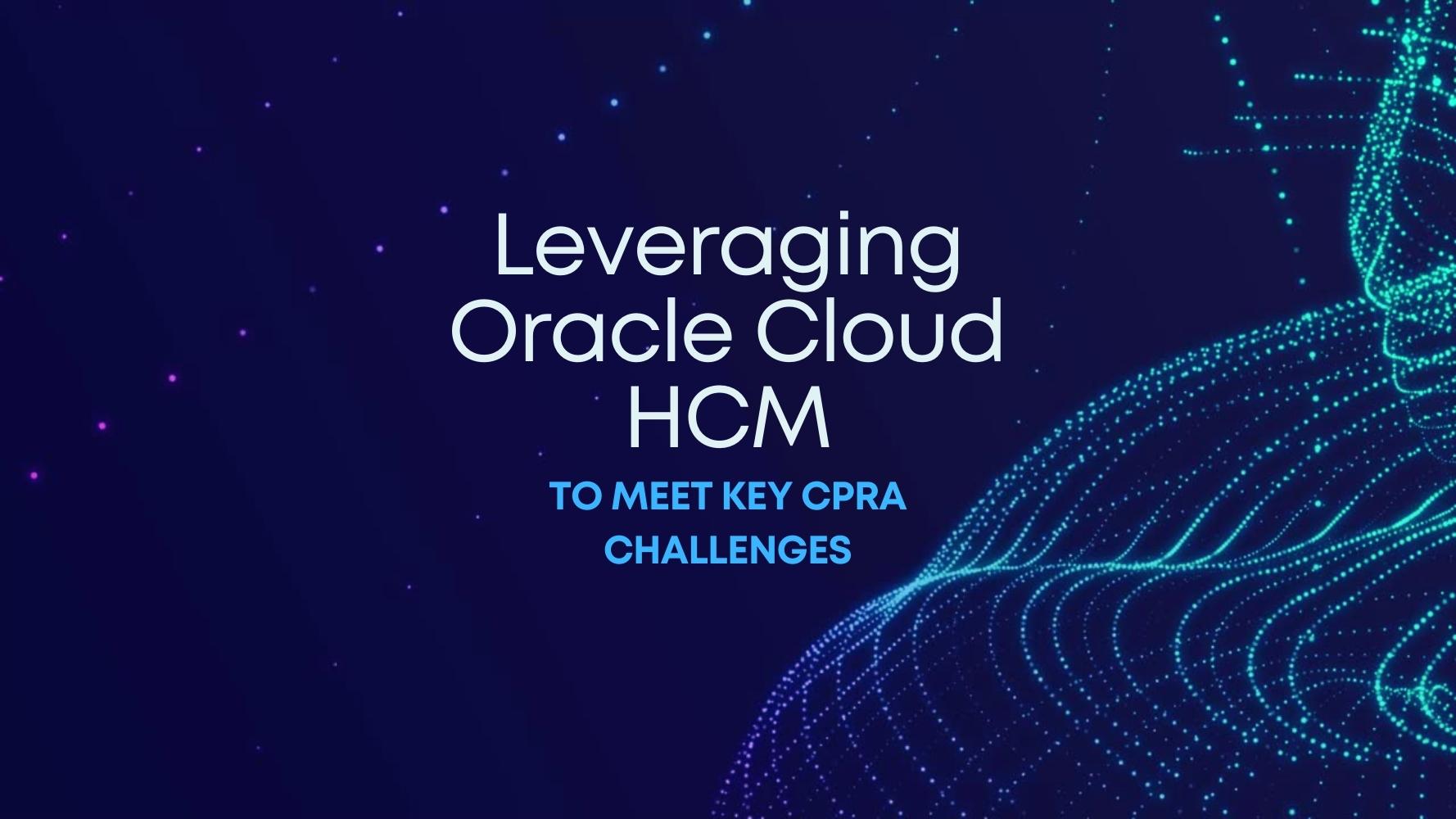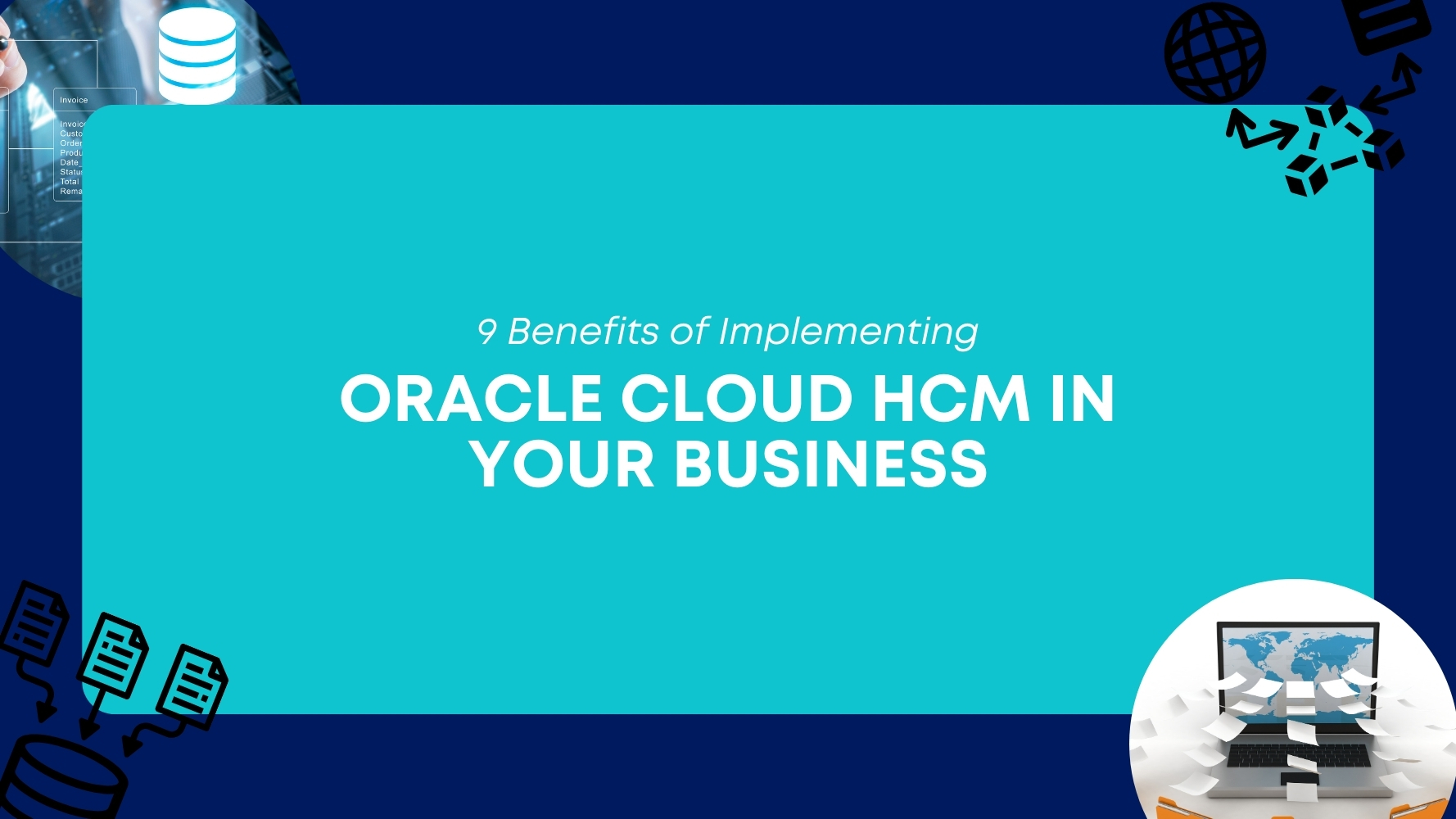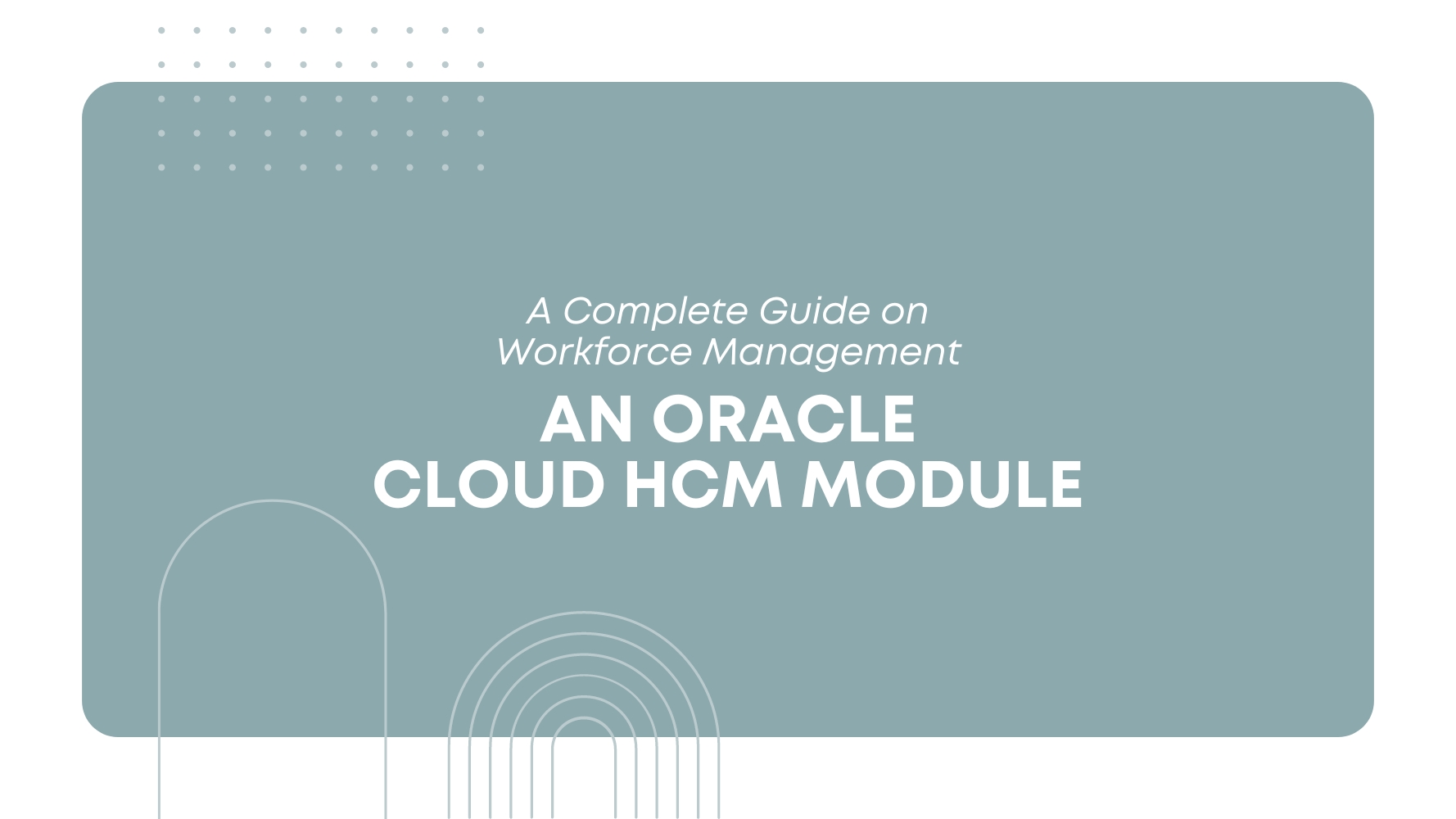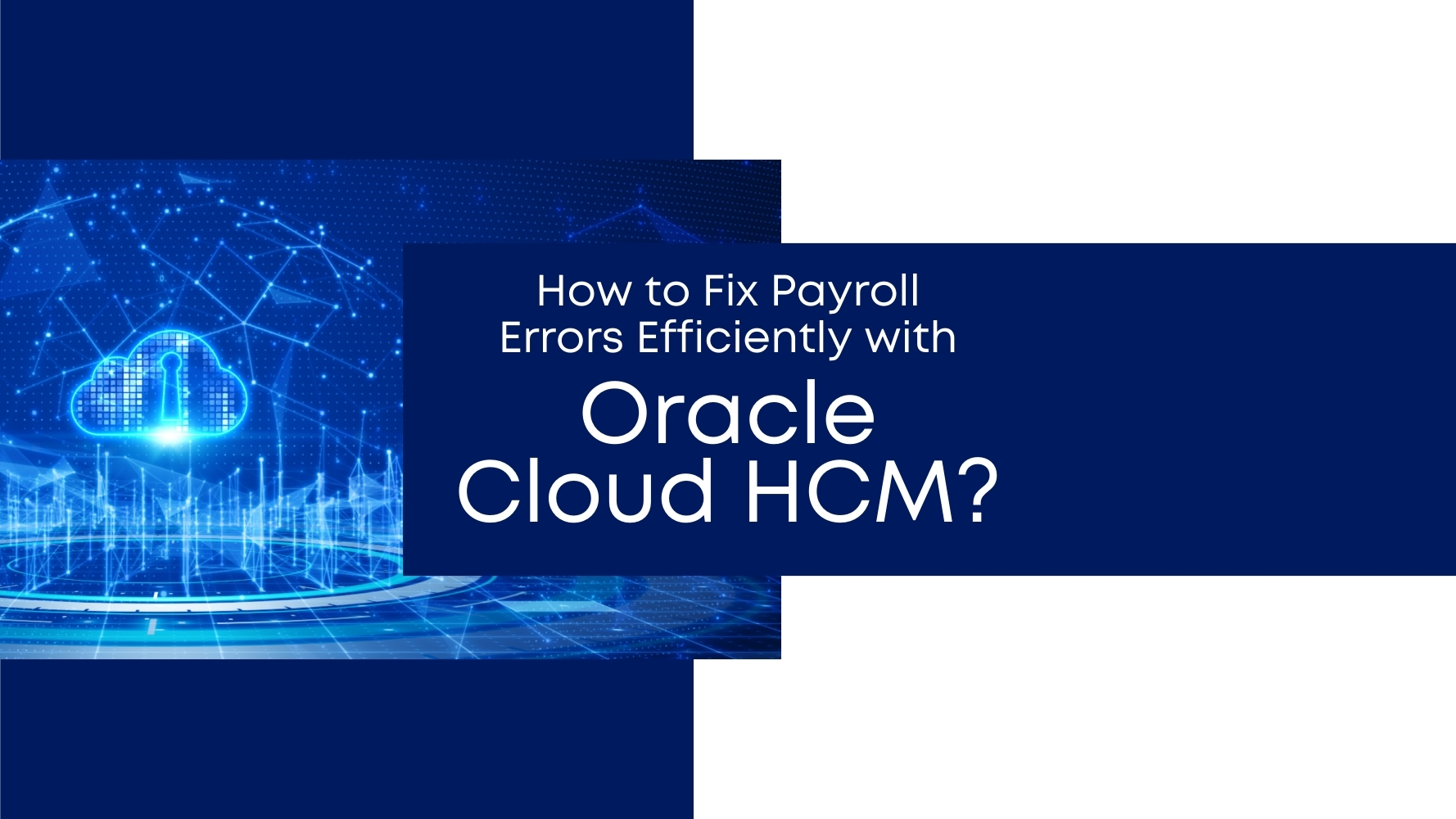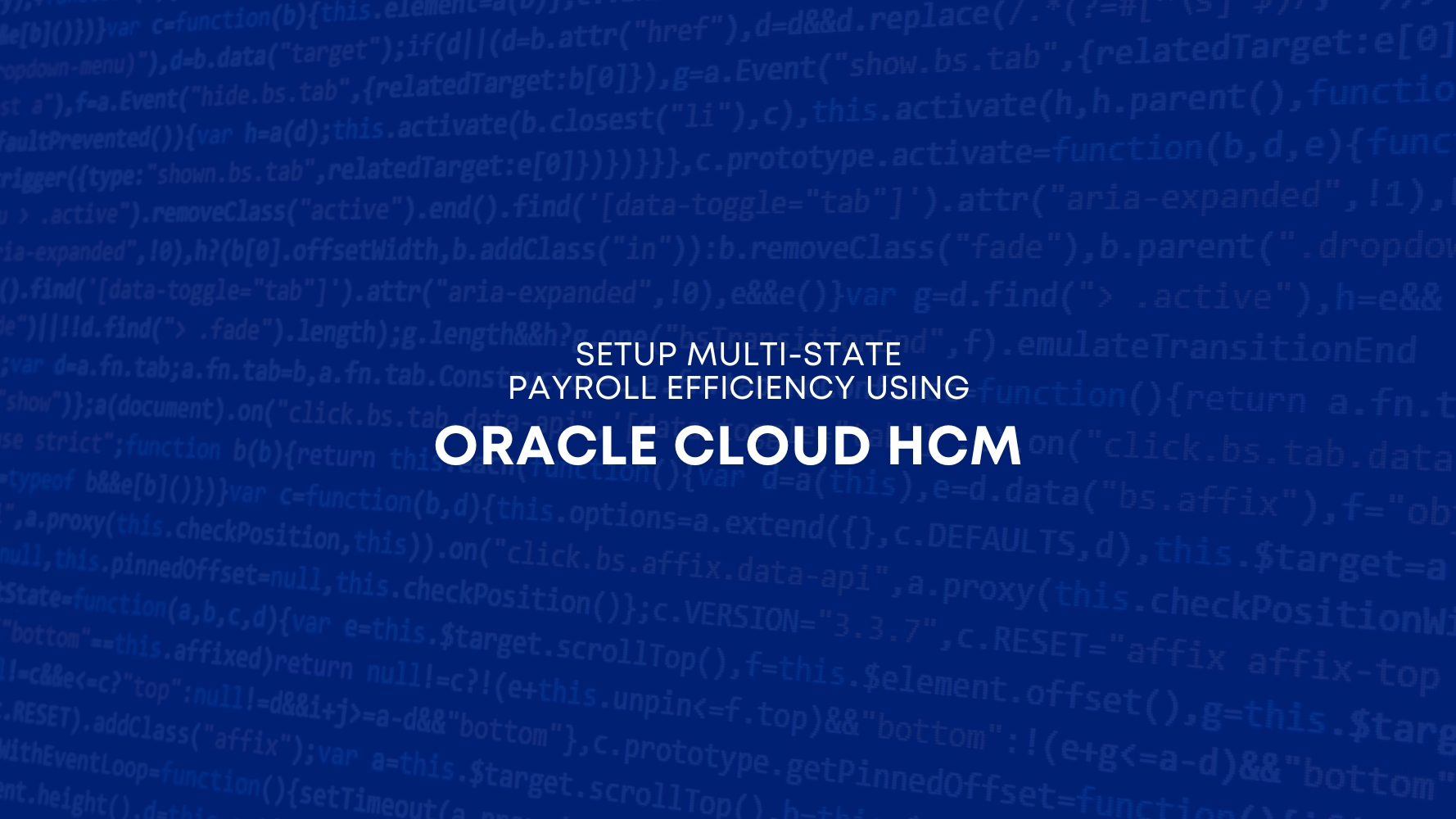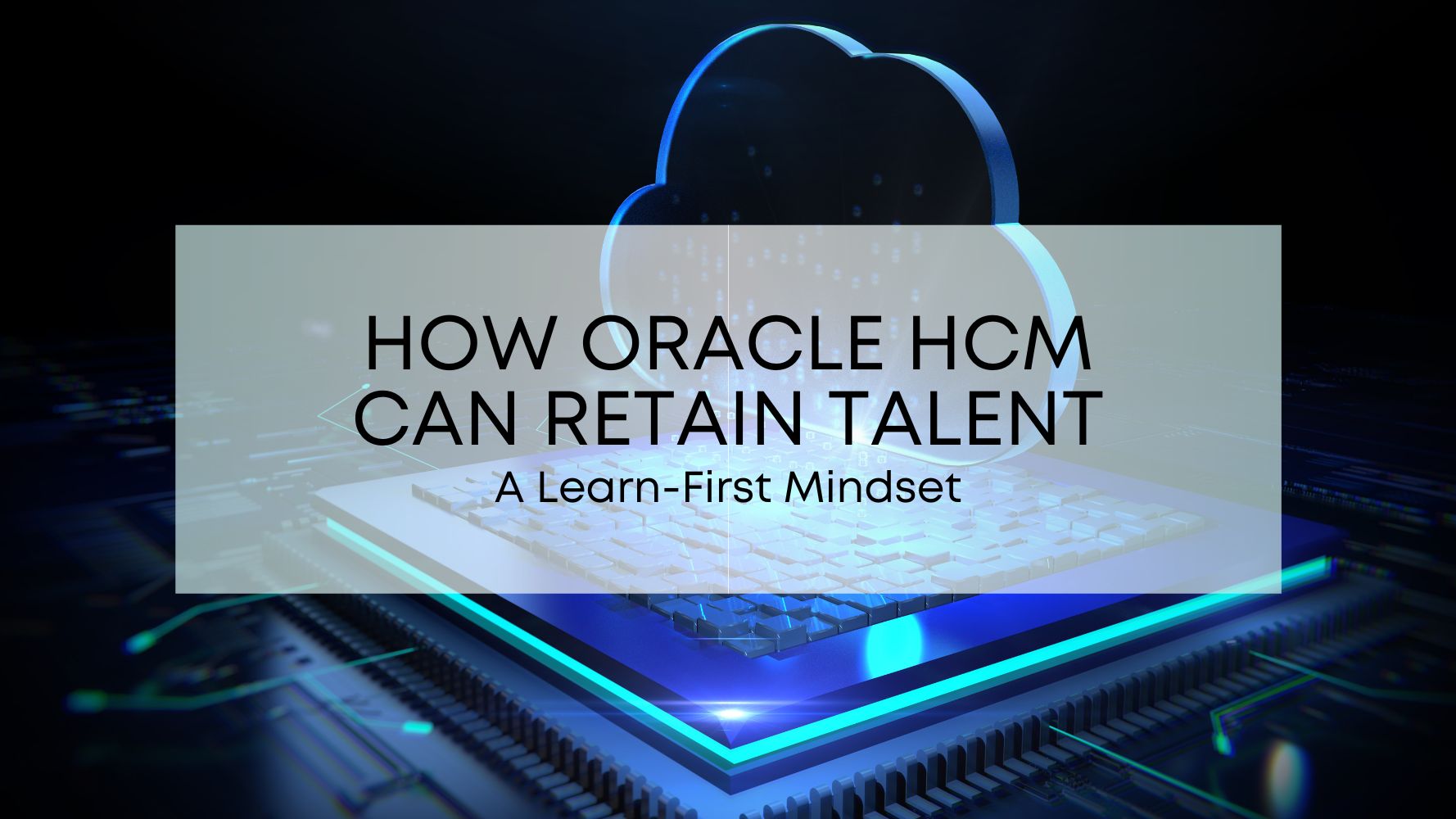The California Privacy Rights Act (CPRA) marks a significant shift in data protection laws, ushering in new challenges for businesses, particularly in the realm of managing sensitive personal information and ensuring compliance with expanded rights for California residents. Navigating this intricate landscape requires the use of advanced tools and technologies. Here we delve into the instrumental role that Oracle Cloud Human Capital Management (HCM) can play in helping businesses effectively address CPRA challenges and ensure a seamless path to compliance.
Understanding CPRA Challenges:
CPRA builds upon the foundation established by the California Consumer Privacy Act (CCPA), introducing several pivotal changes that impact businesses operating within California. Notable challenges encompass:
- Handling Sensitive Personal Information: The CPRA introduces a new category of sensitive personal information, necessitating more stringent regulations governing its collection, utilization, and sharing. Businesses must adopt robust data management practices to safeguard sensitive data.
- Expanded Personal Information Definition: The revised definition of personal information mandates organizations to meticulously track and manage data linked to individuals, irrespective of device or account linkage. This includes information such as biometric and genetic data, financial and health records, location data, and more. Companies must ensure that this data is kept secure and that individuals are aware of how and when their data is used.
- Opt-Out Rights and Privacy Notices: CPRA grants California residents the right to opt out of personal information sales. In response, businesses must update privacy notices and establish mechanisms to honor opt-out requests.
- Augmented Employee Rights: CPRA extends heightened rights to employees, encompassing the right to request data erasure and protection against discriminatory use of personal information.
- Data Minimization and Retention: Strict guidelines for data minimization and retention necessitate the collection and retention of only essential data. Data should only be collected and retained for as long as it is needed for the purpose it was collected for. All unnecessary data should be deleted or anonymized as soon as possible. Data should also be stored securely and protected against unauthorized access.
- Global Applicability: CPRA broadens the definition of a “business,” compelling even non-California entities that collect personal information from California residents to comply.
Leveraging Oracle Cloud HCM:
Oracle Cloud HCM provides a robust suite of tools and features strategically designed to tackle CPRA challenges. Here’s how Oracle Cloud HCM is an invaluable asset in meeting key compliance requisites:
- Data Inventory and Data Map:
– Role-Based Security Model: Oracle Cloud HCM’s role-based security model ensures controlled data access. This aids in the precise documentation of all collected and accessed personal information.
– Security Visualization: Advanced HCM Controls introduce visualization capabilities, enabling data access monitoring and contributing to comprehensive data maps.
- Data Minimization and Privacy Policies:
– Role-Based Access Controls: Oracle Cloud HCM’s role-based access controls effectively restrict data access to authorized personnel, minimizing exposure.
– Sensitive Data Protection: The platform enables sensitive data masking, complemented by automated and enforced data minimization policies.
- Employee Training and Consent Management:
– Integrated Training: Oracle Learning seamlessly integrates privacy compliance training into employee workflows and journeys.
– Consent Management: Employing tools like Experience Design Studio and HCM Communicate, organizations can manage data collection consent.
- Incident Response and Data Protection Officer:
– Automated Analysis and Monitoring: Advanced HCM Controls streamline security analysis, offering essential support in incident response planning.
– Collaboration Interfaces: Oracle Cloud HCM facilitates collaboration through dedicated interfaces for data protection officers, simplifying privacy engagement.
- Global Applicability and Cross-Border Compliance:
– Unified Platform: Oracle Cloud HCM provides a unified platform that can be extended across geographical boundaries, ensuring consistent data handling practices regardless of the location of employees or the business.
– Standardized Processes: With Oracle Cloud HCM, businesses can establish standardized processes for data collection, access, and sharing, making it easier to comply with CPRA requirements across different regions.
- Continuous Monitoring and Adaptation:
– Real-time Insights: Oracle Cloud HCM’s monitoring capabilities offer real-time insights into data access and usage patterns, allowing organizations to detect and address anomalies promptly.
– Adaptable Workflows: The platform’s adaptable workflows enable businesses to quickly respond to changing compliance requirements, ensuring ongoing CPRA compliance.
- Efficient reporting and documentation:
– Audit Trails: Oracle Cloud HCM maintains comprehensive audit trails of data transactions, which can serve as valuable documentation for demonstrating compliance efforts.
– Automated Reporting: The platform’s reporting functionalities can be leveraged to generate automated compliance reports, simplifying the documentation process.
- Collaboration and communication:
– Cross-functional Collaboration: Oracle Cloud HCM fosters cross-functional collaboration by providing designated interfaces for data protection officers, legal teams, and HR departments to work together seamlessly.
– Employee Communication: Tools like HCM Communicate facilitate clear and transparent communication with employees, helping them understand their rights and privacy-related updates.
Conclusion:
The California Privacy Rights Act introduces a complex set of challenges businesses must address to ensure compliance and protect California residents’ personal information. Oracle Cloud HCM emerges as a strategic solution, offering a comprehensive suite of tools and capabilities to tackle these challenges effectively. By harnessing Oracle Cloud HCM, organizations can streamline data inventory management, establish robust data maps, enforce data minimization practices, provide targeted employee training, and facilitate collaboration among key stakeholders.
As businesses strive to adapt to evolving data protection regulations, Oracle Cloud HCM stands as a reliable partner on the journey toward compliance. However, it’s critical to note that while technology can greatly facilitate the process, legal counsel remains essential for interpreting and implementing the nuances of CPRA and other relevant regulation
For a detailed exploration of how Oracle Cloud HCM can facilitate privacy compliance, customers can refer to the guide or can contact with our Oracle Cloud HCM experts at www.tangenz.com !
